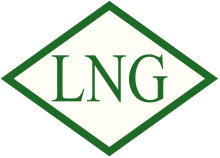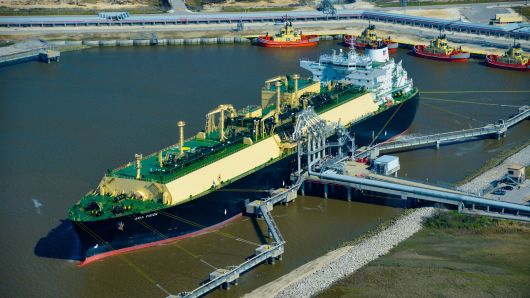
Viewpoint: China’s undiminished appetite for US LNG


State-owned importers are taking their cue from the government's stance in the trade war and had not been seeking incremental supplies from the US even months before China's decision to slap a 10pc tariff on US LNG on 24 September.
China imported just one cargo between 25 September and 30 November, down from 13 cargoes over the same period last year. Cargoes were likely re-routed as part of swap arrangements to avoid the tariffs and being seen taking US supply.
Private firms, in contrast to state-owned enterprises, appear less swayed by the political implications than by the commercial advantages of buying US LNG, anticipating that a trade war is not in the best interest of both countries and, therefore, is unlikely to be prolonged.
China has ambitious plans to boost gas consumption as part of a broader policy to move towards a lower-emissions economy. It was the third-largest buyer of US LNG last year after Mexico and South Korea, despite having no offtake agreements. But the US accounted for only about 1.53mn t, or around 4pc, of its total imports at 38.3mn t in 2017, with Australia, Qatar and Malaysia the top three suppliers to China.
The trade war and the resultant tariff on US LNG come amid a strong push by China to switch residential heating to gas from coal to improve air quality and reduce pollution, thereby driving up gas demand. Beijing has urged importers to deepen ties with gas exporting countries, but the trade war clearly presents a setback to this objective.
The government's target is for gas consumption as a percentage of primary energy consumption to rise to 10pc in 2020, from 5.9pc in 2015 and 7pc in 2015.
Coal's share is expected to be whittled down slightly to 58pc over the same time frame, from 64pc in 2015. Installed gas-fired capacity was 75GW in 2017 and expected to rise to 110GW by 2020, whereas for coal installed capacity was 981GW and expected to hit 1,100GW.
The trade dispute has not deterred developers of new US LNG projects from courting new Chinese buyers, who are also interested to continue the engagement.
Australian independent LNG Limited (LNGL), developer of the Magnolia LNG project in the US Gulf Coast, said at the end of October that its "communications with potential Chinese offtakers remain robust with the intent to complete agreements if trade tensions abate before Magnolia is fully sold out." But LNGL has pushed back a final investment decision on the project to mid-2019 from the end of this year, blaming the trade war for the delay.
Japanese conglomerate Toshiba announced last month that it would sell to Chinese independent gas distributor ENN for $15mn its shares in Toshiba America, which has a 2.2mn t/yr, 20-year third-party processing contract with the US Freeport LNG project's 4.4mn t/yr third train. The three-train Freeport LNG project is scheduled to start up in September 2019, a delay of six months from its original start-up target.
The deal is a sweet one for ENN as Toshiba will pay ENN a one-off fee of $821m to exit the Freeport project when the deal is finalised. The deal allows ENN to diversify its supply portfolio, which consists primarily of Australian LNG.
ENN has a 10-year deal with Chevron to buy 650,000 t/yr from the company's global portfolio, which started this year. The firm additionally has a 10-year portfolio supply agreement with Total for 500,000 t/yr, which began this year, and a supply deal for 280,000 t/yr from Australia's Origin Energy for five years, which also started this year.
US LNG provides geographical and pricing diversification against the majority of LNG contracts in China that are linked to oil. Moreover, long-term forecasts indicate stable prices at around $2-$3/mn Btu for US Henry Hub gas prices against which most US LNG is indexed and offered.
Stable long-term Henry Hub prices versus the volatility of oil prices in recent years make US LNG an attractive future supply source for private firms looking to make their foray into the market. A key consideration for new entrants is trying to ensure they secure supply at competitive prices against existing contracts to garner interest from downstream customers.
US LNG contracts with offtake from Cheniere's Sabine Pass and Corpus Christi projects have been signed on a fob basis at a formula of 115pc of Henry Hub, plus a liquefaction fee of around $2.50-$3/mn Btu.
State-owned PetroChina has supply agreements with Cheniere for a combined 1.2mn t/yr of US LNG, which started this year. Fellow state-owned CNOOC has a portfolio supply deal with Shell for 5mn t/yr, which involves supply mainly from the US and Australia. Both firms are not considering increasing their US offtake, or even buying LNG sourced elsewhere on a Henry Hub basis as long as the trade war continues.
PetroChina finalised two deals in the middle of the year to secure long-term LNG from Qatar as trade tensions were already running high. The first deal is for 2mn t/yr over four years from 2018-2022 and starts this winter. It was likely agreed at 12.5pc of Brent, which would have pegged it at $9.49/mn Btu based on average June Brent levels. The second deal starts from 2023-2040 for 3.7mn t/yr and was likely signed at 12.9mn t/yr. Both contracts may have a heavy winter weighting.
China is building more gas storage and more LNG import terminals as more infrastructure is required to meet the country's burgeoning gas needs. The capacity for some 13 planned regasification terminals scheduled to come on line during 2020-2023 is 38.2mnt/yr, while another nine terminals with a capacity of 25.6mn t/yr have been proposed.
Private importers plan to bring on line around six new terminals — among the 22 planned and proposed terminals — with a combined capacity of 15mn t/yr from 2020. There are currently only three out of a total of 19 regasification terminals in China, which are operated by three private firms — Jovo Energy, ENN and Xinjiang Guanghui.
The recent truce between China and the US has raised some hopes of a de-escalation in the trade war. But for the time being it means that a planned increase in tariffs on US LNG to 25pc in January from 10pc currently is on hold and perhaps highlights that China does not want to rule out the US as a major gas supplier as its gas needs increase. There are hopes on both sides of a quick resolution.


Gold price edges up as market awaits Fed minutes, Powell speech

Glencore trader who led ill-fated battery recycling push to exit

Emirates Global Aluminium unit to exit Guinea after mine seized

UBS lifts 2026 gold forecasts on US macro risks

Iron ore price dips on China blast furnace cuts, US trade restrictions

Roshel, Swebor partner to produce ballistic-grade steel in Canada

EverMetal launches US-based critical metals recycling platform

US hikes steel, aluminum tariffs on imported wind turbines, cranes, railcars

Afghanistan says China seeks its participation in Belt and Road Initiative

First Quantum drops plan to sell stakes in Zambia copper mines

Ivanhoe advances Kamoa dewatering plan, plans forecasts

Texas factory gives Chinese copper firm an edge in tariff war

Pan American locks in $2.1B takeover of MAG Silver

Iron ore prices hit one-week high after fatal incident halts Rio Tinto’s Simandou project

US adds copper, potash, silicon in critical minerals list shake-up

Barrick’s Reko Diq in line for $410M ADB backing

Gold price gains 1% as Powell gives dovish signal

Electra converts debt, launches $30M raise to jumpstart stalled cobalt refinery

Gold boom drives rising costs for Aussie producers

First Quantum drops plan to sell stakes in Zambia copper mines

Ivanhoe advances Kamoa dewatering plan, plans forecasts

Texas factory gives Chinese copper firm an edge in tariff war

Pan American locks in $2.1B takeover of MAG Silver

Iron ore prices hit one-week high after fatal incident halts Rio Tinto’s Simandou project

US adds copper, potash, silicon in critical minerals list shake-up

Barrick’s Reko Diq in line for $410M ADB backing

Gold price gains 1% as Powell gives dovish signal

Electra converts debt, launches $30M raise to jumpstart stalled cobalt refinery
















